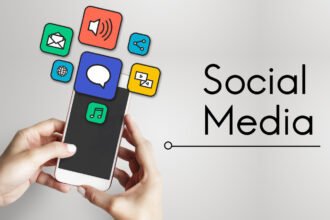 Neuroscientists have shown in study after study that multi-tasking isn’t helping us be more productive, but, in fact, is making us dumber. Are social media tools, with their promise of instant connectivity, notification, and collaboration adding fuel to the fire?
Neuroscientists have shown in study after study that multi-tasking isn’t helping us be more productive, but, in fact, is making us dumber. Are social media tools, with their promise of instant connectivity, notification, and collaboration adding fuel to the fire?
There is a lot of excitement about staying up-to-date and making personal connections with new media tools and applications (think: Facebook, Twitter etc). However, in our attempt to multi-task and keep up to speed on everything we deem relevant, there’s a potential dark side—the dumbing down of our brains.
The Atlantic, features an article titled, “The Autumn of the Multi-Taskers.” In the article, author Walter Kirn, discusses the stress we place on our minds and bodies when we attempt too much multi-tasking with social media tools, Blackberry’s, IM and more.
For example, Kirn notes that through the use of functional magnetic resonance imaging, scientists have discovered:
“Multi-tasking messes with our brains in several ways. At the most basic level, the mental balancing acts that it requires—the constant switching and pivoting—energize regions of the brain that specialize in visual processing and physical …
 Neuroscientists have shown in study after study that multi-tasking isn’t helping us be more productive, but, in fact, is making us dumber. Are social media tools, with their promise of instant connectivity, notification, and collaboration adding fuel to the fire?
Neuroscientists have shown in study after study that multi-tasking isn’t helping us be more productive, but, in fact, is making us dumber. Are social media tools, with their promise of instant connectivity, notification, and collaboration adding fuel to the fire?
There is a lot of excitement about staying up-to-date and making personal connections with new media tools and applications (think: Facebook, Twitter etc). However, in our attempt to multi-task and keep up to speed on everything we deem relevant, there’s a potential dark side—the dumbing down of our brains.
The Atlantic, features an article titled, “The Autumn of the Multi-Taskers.” In the article, author Walter Kirn, discusses the stress we place on our minds and bodies when we attempt too much multi-tasking with social media tools, Blackberry’s, IM and more.
For example, Kirn notes that through the use of functional magnetic resonance imaging, scientists have discovered:
“Multi-tasking messes with our brains in several ways. At the most basic level, the mental balancing acts that it requires—the constant switching and pivoting—energize regions of the brain that specialize in visual processing and physical coordination and simultaneously appear to shortchange some of the higher areas related to memory and learning.”
We like to pride ourselves on the ability to keep up with it all. We ask ourselves, “Why can’t I be on Outlook, have my IM application open, pick up the phone, read a business magazine, and have Linked In and Facebook running all at the same time?”
We’re taught that multi-tasking is the wave of the future. Do more with less. Keep up on everyone and everything. We tell ourselves we can do it all.
Neuroscientists, however, would disagree.
Kirn’s article mentions a study where two groups were asked to sort index cards. One trial group sorted in silence, the other had the same task but also was required to listen for specific tones from a grouping of sounds. At the end of the experiment, both groups sorted the cards properly, but the multi-tasking group couldn’t remember what “exactly” they were sorting.
As social media technologies (i.e. RSS, social networking and web applications, micro-blogging etc), become more prevalent and adoption rates climb, it seems we’re staying more connected with our communities and world, but forgetting half the stuff (perhaps purposefully) pushed to us via these technologies.
Our brains are out-tasked and overloaded—and yet we often look for more opportunities to cram additional information into our heads.
Sometimes, this pursuit of an “always-on” world translates into ill effects for our bodies. The article continues;
“Certain studies find that multi-tasking boosts the level of stress related hormones such as cortisol and adrenaline and wears down our systems through biochemical friction—prematurely aging us. In the short term, the confusion, fatigue and chaos merely hamper our ability to focus and analyze, but in the long term they cause (our brain) to atrophy.”
Despite the provocative title of this post, it is not my intention to indict social media technologies, or the use of any other technology such as cellular phone, PDA, instant messaging and the like. The real issue of concern is lost focus and effectiveness when we use too many of these technologies at the same time.
I believe the best course of action is a careful balance of the use of these value adding technologies with our innate ability to capture, process and store information.
We’re not a machine, but I wonder sometimes if we think we are.






